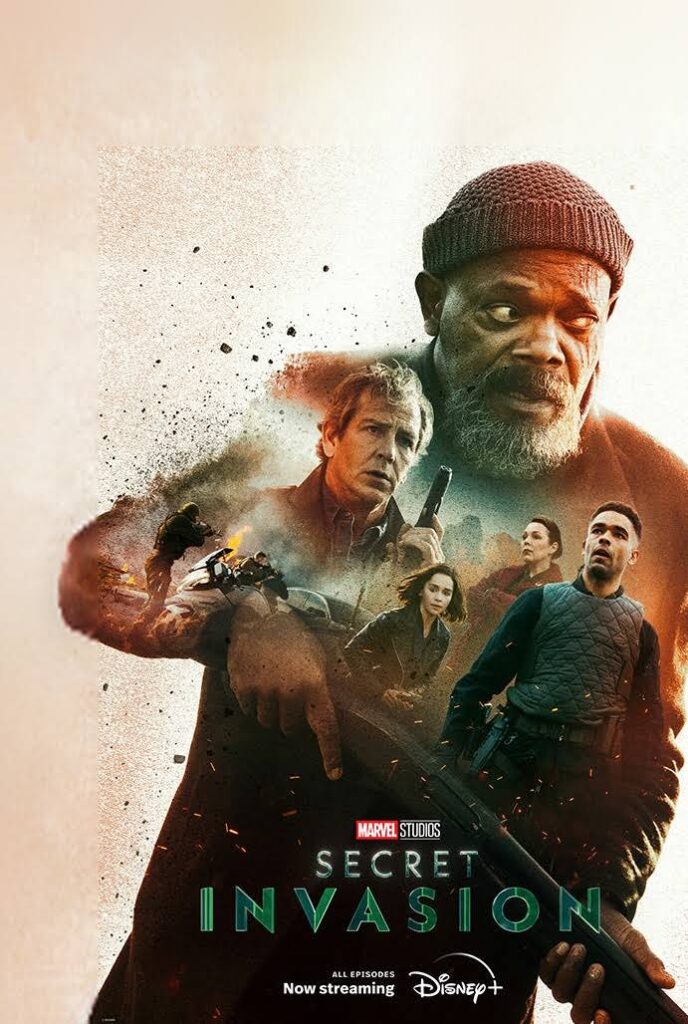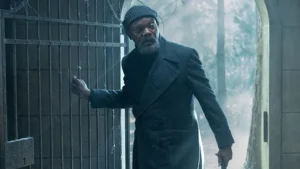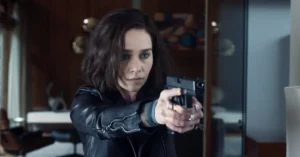Secret Invasion Review: Engaging Start to Unfulfilled Finish
Secret Invasion begins with intrigue but ends in disappointment, failing to fully deliver on its early promise in the Marvel Cinematic Universe.

Secret Invasion: A Tale of Lost Potential in the MCU
“Secret Invasion,” Marvel Studios’ ambitious project set in the sprawling MCU, promised a thrilling espionage narrative led by a star-studded cast including Samuel L. Jackson and Ben Mendelsohn. However, despite its strong start and potential, the series ultimately ends as a disappointing entry in the MCU.
A Strong Start with Espionage Thrills

“Secret Invasion” commenced with a captivatingly unique approach within the Marvel Cinematic Universe, embracing a slower-paced, espionage-driven narrative that stood in stark contrast to the conventional superhero template. From the outset, the series showcased a distinct tone, emphasizing character-driven plots imbued with mature themes, diverging significantly from the more action-centric focus typical of the genre.
The initial episodes were particularly noteworthy for their exploration of political intrigue and covert operations, reminiscent of classic spy thrillers. This thematic shift was not only refreshing but also seemed to promise a deeper, more nuanced storytelling style within the MCU. The series adeptly set up a world brimming with suspicion and secrecy, where allegiances were uncertain, and the line between friend and foe was blurred.
Central to this new direction was Samuel L. Jackson’s portrayal of Nick Fury. Far from the confident, enigmatic leader seen in previous MCU entries, “Secret Invasion” presented a more introspective and vulnerable Fury. Jackson’s performance delved into the complexities of Fury’s character, exploring his motivations, regrets, and the weight of his legacy within the ever-evolving geopolitical landscape of the MCU. This deeper exploration of Fury’s character added layers of depth and helped anchor the series in a more grounded reality.
Emilia Clarke’s introduction as G’iah also marked a significant highlight in the early episodes. Clarke brought a compelling presence to the screen, embodying a character shrouded in mystery and intrigue. Her role in the unfolding narrative was immediately engaging, offering a fresh perspective and new dynamics within the MCU. G’iah‘s character, coupled with Fury’s revamped portrayal, signaled a promising evolution for the series, suggesting a shift towards more complex character arcs and morally ambiguous storytelling.
In these initial stages, “Secret Invasion” succeeded in establishing an atmosphere of tension and anticipation, setting the stage for what many hoped would be a riveting addition to the MCU. The focus on espionage elements over traditional superhero spectacle suggested a series willing to take risks and push the boundaries of what a Marvel show could be. This early promise of a sophisticated, spy-centric drama was a welcome change of pace and indicated a series poised to offer something genuinely different and exciting.
Inconsistent Pacing and Underdeveloped Characters

As “Secret Invasion” unfolds, the initial momentum of its espionage intrigue begins to wane, giving way to pacing and character development issues that increasingly mar the narrative. Despite a promising start, the series gradually reveals a lack of narrative cohesion, with its pacing fluctuating between too slow to effectively build suspense and too rushed to allow for meaningful character development.
The pacing irregularities of “Secret Invasion” are most evident in its treatment of key plot points and character arcs. Certain episodes seem to rush through significant developments, leaving little room for the audience to absorb or fully understand the implications of what’s unfolding. In contrast, other segments of the show appear to linger on less crucial aspects, resulting in a narrative rhythm that feels uneven and at times aimless.
This inconsistency in pacing directly impacts the development of the series’ characters. While the lead performances, particularly by Samuel L. Jackson and Emilia Clarke, are commendable, the supporting cast suffers from a lack of depth. Olivia Colman‘s Sonya Falsworth, for instance, stands out as a character with immense potential. Colman’s portrayal brings a certain gravitas to the role, hinting at a complex personality with murky allegiances. However, the character’s motives and backstory remain underexplored, leaving her feeling more like a plot device than a fully-realized individual.
Similarly, other supporting characters struggle to leave a lasting impact due to the limited screen time and development they receive. These characters, integral to the fabric of the story, are often reduced to mere footnotes, unable to contribute significantly to the narrative or resonate with the audience. The result is a cast of characters who, despite their potential, fail to evolve beyond their initial introductions, making it challenging for viewers to invest in their journeys or understand their roles within the larger story.
Furthermore, the editing choices throughout “Secret Invasion” compound these issues. Key scenes transition abruptly, and important narrative threads are picked up and dropped seemingly at random. This lack of smooth narrative flow disrupts the viewer’s engagement, making it difficult to follow the story’s progression or to fully immerse oneself in the world of the series.
In essence, “Secret Invasion” falters in its middle and later stages due to its inconsistent pacing and underdeveloped characters. The series struggles to find a steady narrative rhythm and fails to give adequate attention to character arcs, ultimately leading to a disjointed and somewhat unsatisfying viewing experience. This inability to maintain the strong foundation set by the initial episodes marks a missed opportunity for the series to deliver on its early promise.
Unfulfilled Expectations and Lost Intrigue

“Secret Invasion” began with the promise of a suspenseful, conspiracy-driven story, rich in political intrigue and covert machinations. The series initially positioned itself as a departure from the traditional superhero narrative, leaning into a more grounded, espionage-themed plot that hinted at a complex web of secrets and lies. However, as the series progressed, this promise of a taut thriller gradually eroded, giving way to a more formulaic and less engaging storyline.
The loss of intrigue is particularly noticeable in the progression of “Secret Invasion”. Early episodes effectively set up a world where no one could be trusted, and hidden agendas lurked behind every interaction. This sense of paranoia and suspense, crucial to any espionage narrative, was initially one of the series’ most compelling aspects. However, the subsequent episodes failed to capitalize on this setup. Plot twists and reveals, rather than adding depth or complexity to the story, often felt predictable or underdeveloped. The intricate political and personal dynamics set up in the beginning were slowly overshadowed by a shift towards more conventional superhero storytelling.
The finale of “Secret Invasion” epitomizes this shift. Criticized for its anticlimactic resolutions, the final episode abandons much of the espionage thriller’s subtlety in favor of a more straightforward, action-heavy conclusion. The heavy reliance on CGI in the finale particularly stands out, contrasting sharply with the series’ earlier episodes, which focused more on character and narrative tension than visual spectacle. This overemphasis on CGI not only detracted from the story’s initial grounded feel but also served to highlight the narrative shortcomings, as the spectacle failed to mask the lack of depth in the resolution.
Moreover, the conclusion of “Secret Invasion” left many narrative threads either unresolved or concluded in a manner that felt rushed and unsatisfactory. Key conflicts and character arcs, painstakingly set up in the initial episodes, were resolved in ways that lacked the emotional payoff or narrative impact that viewers had been led to expect. This resulted in a sense of disappointment and a feeling that the series had not lived up to its full potential.
“Secret Invasion” started as a compelling addition to the MCU with its unique focus on espionage and intrigue. However, as the series unfolded, it gradually lost sight of what made its beginning so engaging. The shift away from a suspenseful, conspiracy-laden plot towards a more standard superhero narrative, culminating in a CGI-heavy and anticlimactic finale, left me feeling that the series failed to fulfill the expectations it had initially set, resulting in a sense of lost intrigue and missed opportunity.
The CGI Problem: A Detractor from the Story

A critical issue that I found increasingly problematic in “Secret Invasion” was the quality and overuse of CGI, particularly evident in the final episodes. Initially, the series was set up with a grounded, espionage thriller vibe, which didn’t heavily rely on visual effects. However, as the series progressed towards its climax, there was a noticeable shift in this approach, culminating in a finale that felt overwhelmingly dependent on CGI.
The climactic battle, a pivotal moment meant to cap off the series, was particularly marred by this overreliance on CGI. Instead of delivering a suspenseful and engaging conclusion, it felt like the storytelling took a backseat to flashy, but ultimately unconvincing, visual effects. This heavy-handed use of CGI not only disrupted the narrative flow but also clashed with the more subdued and tactically driven tone that had been established earlier in the series.
What was particularly jarring was the contrast between the well-crafted, character-driven drama of the initial episodes and the CGI-laden scenes of the finale. It felt as though the series abandoned its more nuanced approach in favor of spectacle, but without the necessary narrative support to make such spectacle meaningful or impactful. This shift was disconcerting and took away from the immersion and investment in the story.
Moreover, the quality of the CGI itself was at times subpar, which only further detracted from the experience. In moments where the series could have focused on the strengths of its characters and plot, the overuse of poorly executed CGI served as a distraction, pulling attention away from the story’s core elements.
The finale’s reliance on CGI was a significant detractor from “Secret Invasion,” undermining what could have been a strong conclusion to an initially promising series. It exemplified a missed opportunity to maintain the integrity of the story’s espionage roots and instead resulted in a conclusion that felt disconnected from and less satisfying than the series’ promising start.
Conclusion: A Missed Opportunity in the MCU
“Secret Invasion” had the elements to be a groundbreaking addition to the MCU, but it ultimately fails to capitalize on its early potential. The series starts with an engaging, mature approach but concludes with an underwhelming finale that left me longing for what could have been. While it offers moments of solid performance and intrigue, “Secret Invasion” stands as a reminder of the delicate balance needed to blend genres successfully in the superhero realm. In the end, the series is a testament to lost potential, leaving a bittersweet taste for fans expecting a more consistent and fulfilling narrative in the MCU.
